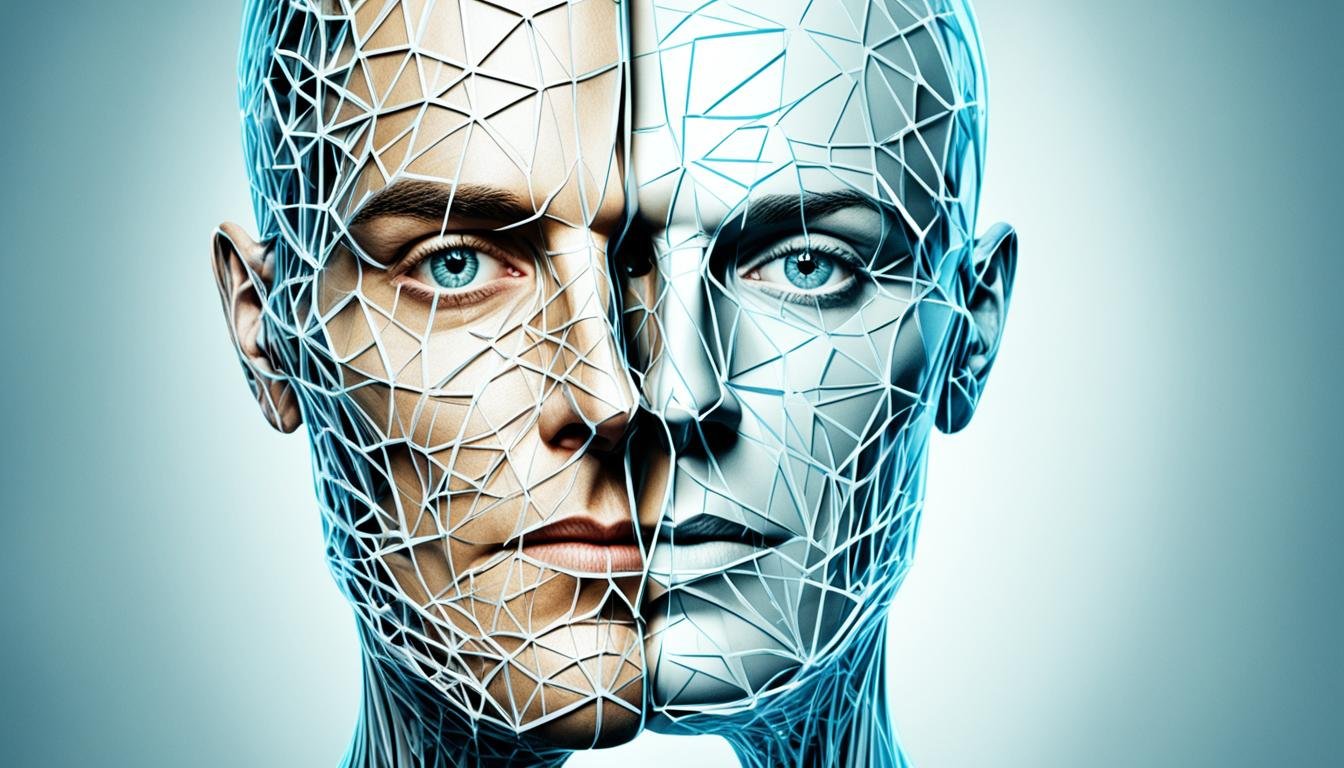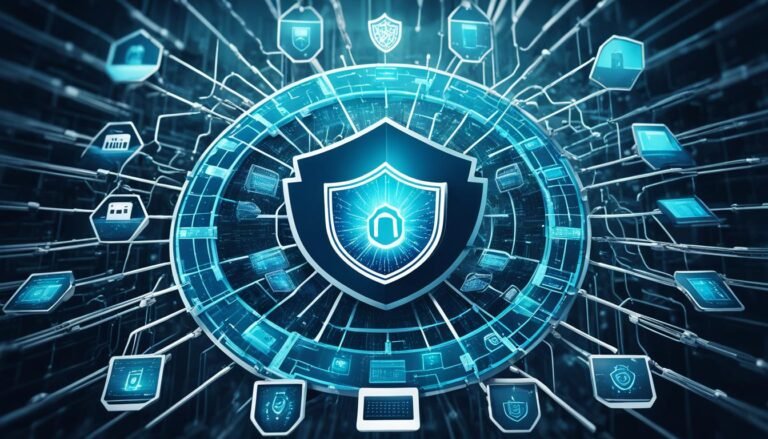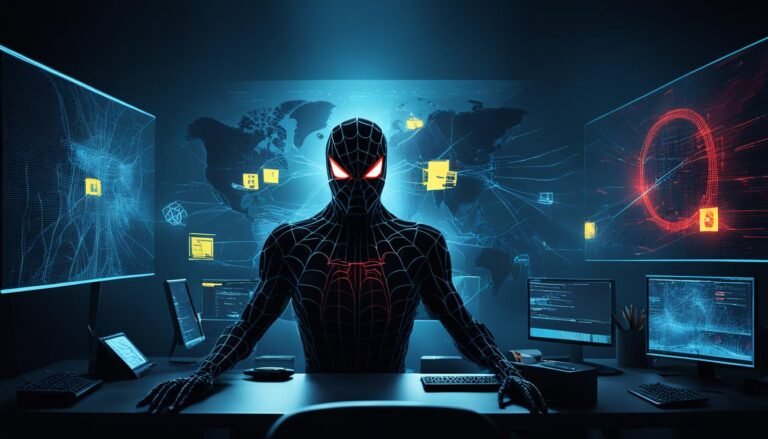Misinformation and Deep Fakes: The impact of misinformation and deep fake technologies.
In today’s world, where we can find information with just a click, misinformation and deep fakes are a big worry. These technologies can change how we see things and affect our society a lot. They can sway public opinion and even threaten our democracy.
Misinformation means sharing false or misleading info. Deep fakes are fake media that look very real. Together, they can spread lies widely and change what we think is true.
Key Takeaways
- Misinformation and deep fakes threaten democracy, human rights, and free speech.
- They can change what people think and make us doubt our leaders and institutions.
- Even the smartest people can be tricked by deep fakes, making it hard to know what’s real.
- We need to find a way to stop these false info and deep fakes without limiting free speech.
- We need more research and new ideas to fight the bad effects of these issues.
The Threat to Democracy and Elections
Misinformation and disinformation campaigns are big threats to democracy and election integrity. They use tactics to trick voters and harm the democratic process for political gains.
Foreign interference is key in these efforts. State-backed groups often spread false info to sway election results and shake up countries. Ecuador, the Philippines, and the U.S. have seen foreign meddling in their elections.
Bots and trolls are big players in these campaigns. They are automated or partly automated accounts that spread lies and divisive stories. These fake accounts flood social media, making it hard to know what’s true.
These campaigns often target certain groups with false info. They aim to stop these groups from voting and weaken trust in democracy. They also go after election observers and independent journalists who try to reveal the truth.
The effects go beyond just elections. Journalists and human rights defenders who speak out face online abuse and lies. This limits free speech and silences those who question power.
We need everyone to work together to fight misinformation and disinformation. Governments, tech companies, civil groups, and citizens must act. We should teach people to think critically and punish those who spread lies.
By fighting against false info, we protect democracy. We make sure elections truly reflect what the people want.
The Impact on Human Rights Defenders and Journalists
Misinformation and disinformation campaigns are big threats to those who defend human rights and journalists. They are key in uncovering wrongdoings, speaking up for the overlooked, and keeping those in power in check. But, they often face attacks from those who want to harm their reputation and quiet them.
In today’s digital world, a new threat has come up. Computational propaganda is now a key tool for groups and governments to shape public opinion and spread lies. Human rights defenders and journalists often get hit with harassment campaigns backed by these propaganda efforts.
Harassment can take many forms, like online abuse, stalking, revealing personal info, and threats of harm. These actions not only put the targeted people in danger but also make them think twice about speaking out. This can stop them from using their right to freedom of speech.
“The rise of computational propaganda and the targeted harassment of human rights defenders and journalists are deeply concerning. These campaigns undermine the principles of a free and open society, hindering the work of those striving for truth and justice.” – Alex Smith, Human Rights Advocate
Targeted harassment can have a big impact. It can make human rights defenders and journalists hesitant to share their opinions. The fear of more attacks online or in real life can stop them from pushing for change, reporting on important issues, and telling the truth.
This situation is not just a threat to their safety. It also goes against their basic human rights. The right to speak freely, gather, and protest is being attacked when those who speak out are silenced by harassment.
Misinformation as a Tool for Hate Speech
In today’s digital world, misinformation spreads fast, leading to a dangerous trend. False stories are now used to spread hate speech. This is a big threat to our social peace, making people intolerant, racist, and violent.
These false stories often target weak groups, using their biases to make things worse. They spread stereotypes and fear, pushing people to act out in a discriminatory way. This makes society even more tense.
One big problem is that people can post anonymously online. This lets them spread harmful stuff without facing the consequences. Being anonymous makes hate speech more common and makes it hard to track down the people behind it.
Hate speech from online can lead to violence in real life. This creates a cycle of harm that’s hard to stop. It’s hard to deal with hate speech because it’s easy to spread and there’s no clear way to blame anyone.
To fight hate speech, we need everyone to work together. This includes tech companies, groups that help society, and governments. They need to make rules to stop hate speech and make sure online places check their content well.
It’s also key to teach people how to use the internet wisely. This means teaching them to check if information is true and think about what they post online. By doing this, we can make a society that knows the difference between good and bad online info.
Stopping hate speech needs a plan that covers tech, society, and laws. With the right mix of these, we can make the internet safe from hate speech caused by false info.
Conclusion
Misinformation and deep fakes are big threats to human rights and democracy. They can harm the trust people have in their leaders and institutions. These issues affect many parts of society, like the fairness of elections and the right to speak freely.
We need to find a way to stop this without taking away our freedom of speech. Fighting against false information should focus on teaching people to be more media-savvy. We should also work on checking facts online and finding ways to spot and stop deep fakes.
Everyone, from governments to businesses and individuals, must join forces to fight against the bad effects of false information. Together, we can keep our elections fair, protect human rights, and keep our democracies strong.







